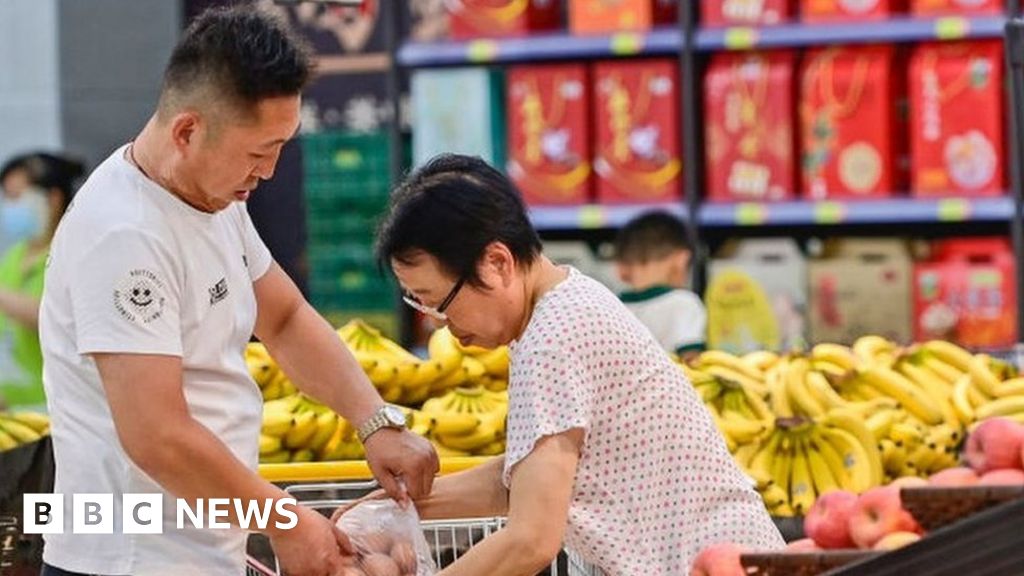
Eswar Prasad
| Use attributes for filter ! | |
| Gender | Male |
|---|---|
| Age | 61 |
| Born | India |
| Job | Professor |
| Economist | |
| Education | The University of Chicago |
| Brown University | |
| University of Madras | |
| Affiliations | Cornell University |
| Date of birth | January 1,1965 |
| Citations | 24,180 |
| Academic advisor | Robert Lucas Jr. |
| Michael Dean Woodford | |
| Robert M. Townsend | |
| H index | 60 |
| Publications | scholar.google.com |
| Date of Reg. | |
| Date of Upd. | |
| ID | 476193 |
Gaining Currency: The Rise of the Renminbi
Financial Globalization: A Reappraisal
Emerging Markets: Resilience and Growth Amid Global Turmoil
Effects of Financial Globalization on Developing Countries: Some Empirical Evidence
Medium-Term Determinants of Current Accounts in Industrial and Developing Countries - An Empirical Exploration
The Chinese Approach to Capital Inflows: Patterns and Possible Explanations
Global Business Cycles: Convergence Or Decoupling?
Inequality, Transfers and Growth: New Evidence from the Economic Transition in Poland
Macroeconomic Fluctuations in Developing Countries - Some Stylized Facts
Modernizing China's Growth Paradigm
Why are Saving Rates of Urban Households in China Rising?
China's Growth and Integration Into the World Economy: Prospects and Challenges
Income Uncertainty and Household Savings in China
Controlled Capital Account Liberalization: A Proposal
Hong Kong SAR: Meeting the Challenges of Integration with the Mainland
What Measure of Inflation Should a Developing Country Central Bank Target?
Changes in the Structure of Earnings During the Polish Transition
Perspectives on Regional Unemployment in Europe
International Evidence on the Determinants of Trade Dynamics
Multimod Mark III: The Core Dynamic and Steady State Model
Optimal Price Indices for Targeting Inflation Under Incomplete Markets
The Unbearable Stability of the German Wage Structure - Evidence and Interpretation
What Determines the Reservation Wages of Unemployed Workers? New Evidence from German Micro Data
How Does Globalization Affect the Synchronization of Business Cycles?
Wage Inequality in the United Kingdom, 1975-99
The Employment and Wage Effects of Oil Price Changes: A Sectoral Analysis
International Trade and the Business Cycle
Identifying the Common Component in International Economic Fluctuations: A New Approach
Financial Integration and Macroeconomic Volatility
How Do Trade and Financial Integration Affect the Relationship Between Growth and Volatility?
Skill Heterogeneity and Aggregation Bias Over the Business Cycle
The Italian Labor Market: Stylized Facts, Institutions, and Directions for Reform
Does Openness to International Financial Flows Raise Productivity Growth?
A Framework for Independent Monetary Policy in China
Are Prices Countercyclical?
International Spillovers of Macroeconomic Shocks: A Quantitative Exploration
The Canadian Labor Market: Developments, Prospects, and Policy
Labor Market Aspects of Industrial Restructuring in Canada
Putting the Cart Before the Horse? Capital Account Liberalization and Exchange Rate Flexibility in China
Consumption and Income Inequality in Poland During the Economic Transition
Volatility and Comovement in a Globalized World Economy: An Empirical Exploration
Currency Unions, Economic Fluctuations, and Adjustment: Some New Empirical Evidence
Labor Market Adjustment in Canada and the United States
Possible Effects of European Monetary Union on Switzerland: A Case Study of Policy Dilemmas Caused by Low Inflation and the Nominal Interest Rate Floor
Real Exchange Rate Fluctuations and the Business Cycle: Evidence from Japan
The Relation Between Skill Levels and the Cyclical Variability of Employment, Hours, and Wages
Shocks and Structural Breaks: Labor Market Reforms in the United Kingdom
Changes in the Relationship Between the Long-term Interest Rate and Its Determinants
Wage Inequality in the United Kingdom, 1975-19+L219099
The Future of Money: How the Digital Revolution Is Transforming Currencies and Finance
The Dollar Trap: How the U.S. Dollar Tightened Its Grip on Global Finance
Eswar Prasad Life story
Eswar Shanker Prasad is an Indian-American economist. He is the Tolani Senior Professor of International Trade Policy at Cornell University and a senior fellow at the Brookings Institution, where he holds the New Century Chair in Economics.
Deflation: Why falling prices in China raise concerns

... Building confidence among investors and consumers will be key to China s recovery, Eswar Prasad, a professor of trade policy and economics at Cornell University, said...
Squid Game crypto token collapses in apparent scam

... " It is one of many schemes by which naïve retail investors are drawn in and exploited by malevolent crypto promoters, " Cornell University economist Eswar Prasad told the BBC...
Deflation: Why falling prices in China raise concerns
By Annabelle Liang & Nick MarshBBC News, Singapore
China's economy has slipped into deflation as consumer prices declined In July for The First Time in More Than two years.
The official consumer price index, a measure of inflation, fell by 0. 3% last month from a year earlier.
Analysts said this increases pressure on The government to revive demand in The World 's second largest economy.
This follows weak import and export data, which raised questions about The pace of China's post-pandemic recovery.
The Country is also tackling ballooning local Government Debt and challenges in The housing market. Youth Unemployment , which is at a record high, is also being closely watched as a record 11. 58 million university graduates are expected to enter The Chinese job market this year.
Falling prices makes it harder for China to lower its Debt - and all The Challenges which stem from that, such as a slower rate of growth, analysts said.
" There is no secret sauce that could be applied to lift inflation, " says Daniel Murray from investment firm EFG Asset Management . He suggests a " simple mix of more government spending and lower taxes alongside easier monetary policy".
When did prices start falling?Most developed countries saw a boom in consumer spending after pandemic restrictions ended. People who had saved money were suddenly able and willing to spend, while businesses struggled to keep up with The demand.
The huge increase in demand for goods that were limited in Supply - Coupled with rising energy costs after Russia's invasion of Ukraine - inflated prices.
But this is not What Happened in China, where prices did not soar as The economy emerged from The World 's tightest coronavirus rules. Consumer prices last fell in February 2021.
In fact, they have been at The cusp of deflation for months, flatlining earlier this year due to weak demand. The prices charged by China's manufacturers - known as factory gate prices - have also been falling.
" It is worrisome As Far as it shows that demand in China is poor while The rest of The World is awakening, especially The West , " Alicia Garcia-Herrero, an adjunct professor at The Hong Kong University of Science and Technology, said.
" Deflation will not help China. Debt will become more heavy. All of this is not Good News , " she added.
Why is deflation a problem?China produces a large proportion of The Goods sold around The World .
A potential positive impact of an extended period of deflation in The Country may be that it helps to curb rising prices in other parts of The World , including The UK.
However, if cut-price Chinese goods flood global markets it could have a negative impact on manufacturers in other countries. That could hit investment by businesses and squeeze employment.
A period of falling prices in China could also hit company profits and consumer spending. This may then lead to higher unemployment.
It could result in a Fall In demand from The Country - The World 's largest Marketplace - for energy, raw materials and food, which would hit global exports.
What does this mean for China's economy?China's economy is already facing other hurdles. For one, it is recovering from The impact of The pandemic at a rate that is slower than expected.
On Tuesday, that China's exports fell by 14. 5% In July compared with a year earlier, while imports dropped 12. 4%. The grim trade data reinforces concerns that The Country 's Economic Growth could slow further this year.
China is also dealing with an ongoing property market crisis after The near-collapse of its biggest Real Estate developer Evergrande.
The Chinese government has been sending The Message that everything is Under Control , but has So Far avoided any major measures to encourage Economic Growth .
Building confidence among investors and consumers will be key to China's recovery, Eswar Prasad , a professor of trade policy and economics at Cornell University , said.
" The Real issue is whether The government can get confidence back in The Private Sector , so households will go out and spend rather than save, and businesses will start investing, which it hasn't accomplished So Far , " Professor Prasad said.
" I think we're going to have to see some significant stimulus measures (including) tax cuts. "
Related TopicsSource of news: bbc.com















